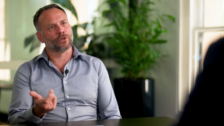‘Categoric repricing of risk’ in credit markets open opportunity
Having just experienced one of the weakest periods for credit and fixed income markets since the Global Financial Crisis, “now is the time” to step back into the asset class according to Jeff Boswell, Head of Alternative Credit at Ninety One.
Reflecting on the experiences of 2022, Boswell described as “brutal” the returns and volatility experienced by both traditional long duration fixed income and credit investors alike. A “categoric repricing of risk” has occurred leaving very few prices to hide, but potentially offering opportunity.
Those invested into credit, particularly lower rated investments, felt a “double body blow” with the first quarter seeing rising government bond yields and the second a widening of credit spreads that added insult to injury. This came after a period in which credit markets were nearing their long-term average ‘tights’ or highest valuations.
Boswell explained, “while most credit markets started the year towards their cyclical tights in terms of both spreads and yields, we have seen a categoric repricing of risk across the board. To varying degrees, all large credit markets are now attractively valued from a spread perspective, and particularly enticing from a yield standpoint.”
It appears that the threat of an impending growth slowdown has been central to the underperformance of lower-rated credit, with spreads widening across all rating categories, but particularly high yield. And for good reason, Boswell suggests with “the absolute downside in lower-rated credit, in the event of a more negative economic scenario playing out and credit spreads drifting towards recessionary wides, is understandably a lot greater.”
The result is a unique dynamic in which spreads, and credit may look attractive from a historical valuation lens, but an uncertain economic outlook is causing reticence to accept higher credit risk.
In Boswell’s view, “from an absolute valuation perspective, credit certainly appears to be more interesting than it has been for a long time” but with a focus on higher quality and minimising default/cyclical risk required. The result is that Ninety One believe now is the time to take ‘selective’ risk where investors are being paid for it, and expect higher quality issues to outperform in both a weaker and stronger economic environment.











